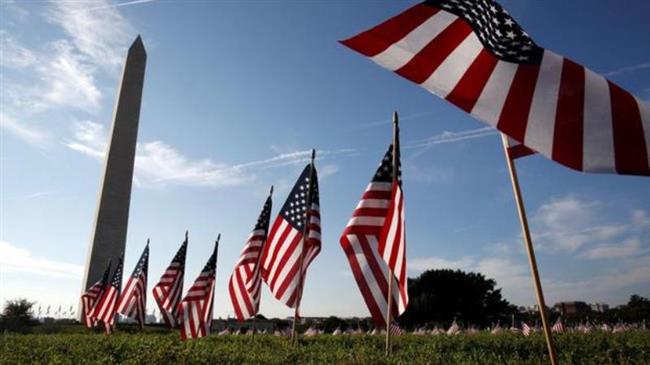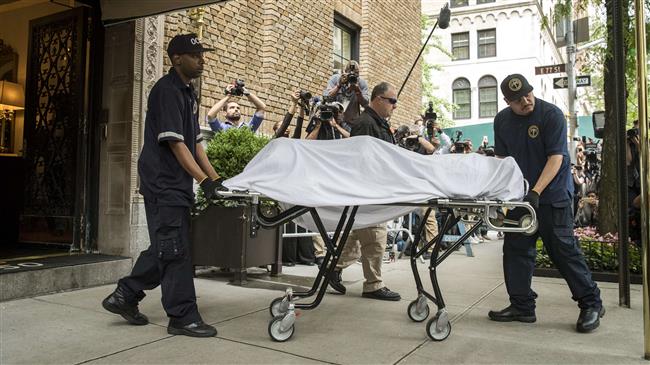New US military suicide report may revive debate to limit access to firearms
A newly released report by the US Defense Department on military suicides among active-duty service members in 2017 reveals that two-thirds of such acts involved the use of firearms, reviving debate on the need to limit soldiers’ access to guns in a bid to reduce the high rate of suicides among US troops.
According to the report released last week, of the 309 suicides among active-duty troops in 2017, firearms played a role in 202 of the fatalities, though most were privately owned guns, not service weapons, military.com news outlet reported Saturday.
The study further suggested that promoting separate storage of guns and ammunition, as well as discouraging public carry when not on duty, could decrease the military suicide rate, which in 2017 stood at nearly 22 deaths per 100,000.
As the Pentagon and the Department of Veterans Affairs gear up for their biennial suicide prevention conference next month, US lawmakers and analysts are also assessing the feasibility of restricting access to firearms by military service members and veterans who have all been trained to shoot and many of whom own their own weapons.
During a House Veterans Affairs Committee hearing in April, New York Congresswoman Kathleen Rice emphasized that any discussion on suicide among US troops can't be "adequately addressed ... without talking about guns, firearms."
"It's been proven," Rice said, "that restricting access to firearms may reduce suicide rates."
At a separate hearing, Terri Tanielian, a researcher at Rand Corp. think tank who has studied the issue extensively, further underlined that policies must "be created and acted and tested" to reduce access.
"We must ... promote firearm safety among veterans ... policies that directly address the risk that firearms pose to veterans," she said.
In a study published last month in JAMA Network Open researchers found that the suicide rate among soldiers who owned guns was higher than that for their peers who didn’t. It further pointed out that storing a loaded gun at home or carrying one was associated with a four-fold increase in the odds of suicide death among soldiers.
However, discussions on means restriction are challenging in a community where many members privately own guns and have a low incidence of weapons-related infractions.
According to Pentagon’s 2017 Suicide Event Report, the suicide rate for active-duty troops stood at 21.9 deaths per 100,000 members, a rate similar to the 2016 rate of 21.5 per 100,000.
The age-adjusted civilian rate, which includes American civilians as well as members of the military, is 17.4 per 100,000, according to the US Defense Department.
This is while the rates for Reserve and Guard members remain significantly higher than active-duty deaths: In 2017, the rate for Reserve members was 25.7 per 100,000 and 29.1 for the Guard.
In the report, the Pentagon further noted that the 2017 figures were "not statistically significantly different from 2014 to 2016 rates."
D-8’s role in Iran’s economy after Cairo summit
China slams US as ‘war-addicted’ threat to global security
China ‘firmly opposes’ US military aid to Taiwan
VIDEO | Press TV's News Headlines
President Yoon Suk Yeol to be removed from office
At least 19 Gazans killed by Israeli airstrikes since dawn: Medics
Leader: Iran neither has nor needs proxy forces
US fighter aircraft shot down ‘in friendly fire’ amid aggression on Yemen













 This makes it easy to access the Press TV website
This makes it easy to access the Press TV website